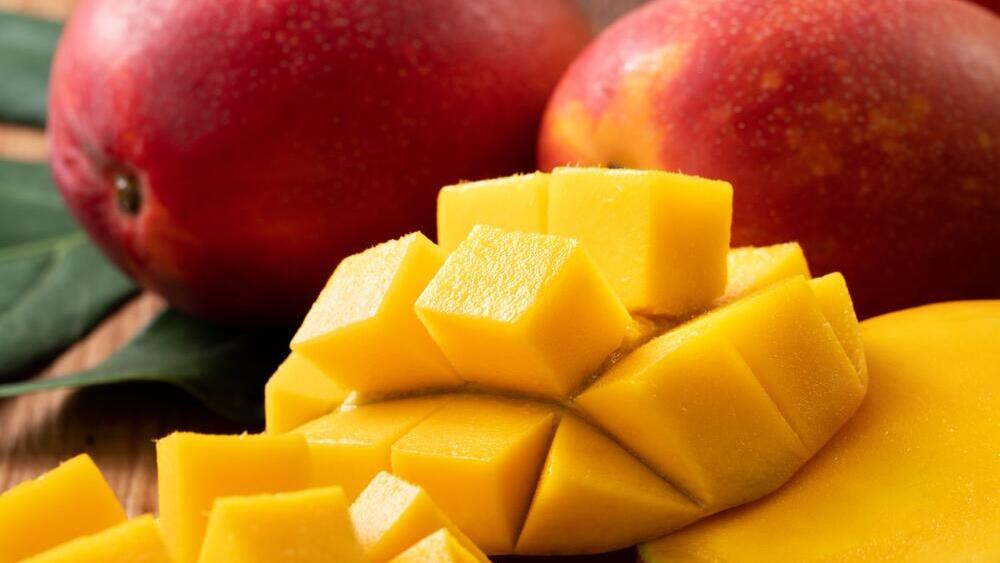Getting your Trinity Audio player ready...
The mango is one of the most popular fruits among Israelis, but not everyone is familiar with its health benefits. Here are some reasons why it’s worth eating:
1. Boosts the immune system: Mangoes are rich in essential vitamins and minerals that strengthen the immune system, such as vitamins C and A, which also contribute to skin health. Vitamin A is crucial for good night vision and can be found in orange plant foods like sweet potatoes, pumpkin, carrots and, of course, mangoes.
Vitamin C plays an important role in improving iron absorption from food, so it’s recommended to pair mangoes with iron-rich foods like almonds, tahini or oatmeal.
2. Supports heart health: Magnesium helps relax muscles, and a deficiency in magnesium can cause muscle cramps. Potassium helps regulate blood pressure by promoting fluid excretion. Both minerals are vital for heart health, making mangoes an ideal food for maintaining heart health.
3. Contains antioxidants that protect against diseases: Mangoes contain antioxidants that help protect the body from damage caused by free radicals, which can form after grilling meat or smoking cigarettes. Free radicals can damage blood vessels and cells, potentially leading to diseases like cancer and heart disease.
4. High in dietary fiber: Dietary fibers are part of the carbohydrate group but aren’t absorbed by the body and have no caloric value. Fibers increase the volume of food passing through the digestive system, contributing to a feeling of fullness and aiding weight loss. Studies show fiber helps heart health by reducing bad cholesterol and blood pressure, making mangoes a superfood.
5. Enhances mood: Studies found that eating fruits and vegetables contributes to a feeling of happiness. Mangoes are rich in many nutrients essential for proper brain function (carbohydrates, vitamin C, magnesium and potassium). In general, consuming fruits and vegetables reduces the intake of ultra-processed foods like sweets and snacks, which can lead to increased long-term depression.
6. Low in carbohydrates: A common belief states mangoes are high in carbohydrates. However, this depends on the comparison itself. Mangoes are sweeter than high-carb foods like bread and rice, but they don’t necessarily contain more carbohydrates compared to them.
The carbohydrate content in a small mango (100 grams) is equivalent to two slices of bread or four crackers, containing 15 grams of carbohydrates. It’s all about the quantity. A 100-gram portion or half a small mango is a fruit serving of about 60 calories.
 Elena YaozPhoto: Avra Perez
Elena YaozPhoto: Avra PerezKeep mango fresh for a long time: To ripen the mango, it’s best to keep it out of the fridge for a few days for quick ripening before storing it for a few more days. Just be sure not to let it ripen in direct sunlight, which can reduce the fruit's nutritional value.
A matter of color: Does a green mango mean it’s not ripe? Not necessarily. There are several varieties of mango in different colors (yellow, orange, green), so color isn’t the only indicator of ripeness but mainly the fruit’s texture. When its peel is slightly soft, and a gentle press on the fruit feels slightly pliable and easy to push, it can be assumed that the fruit is ripe and ready to eat.
- Elena Yaoz is a certified clinical dietitian.



